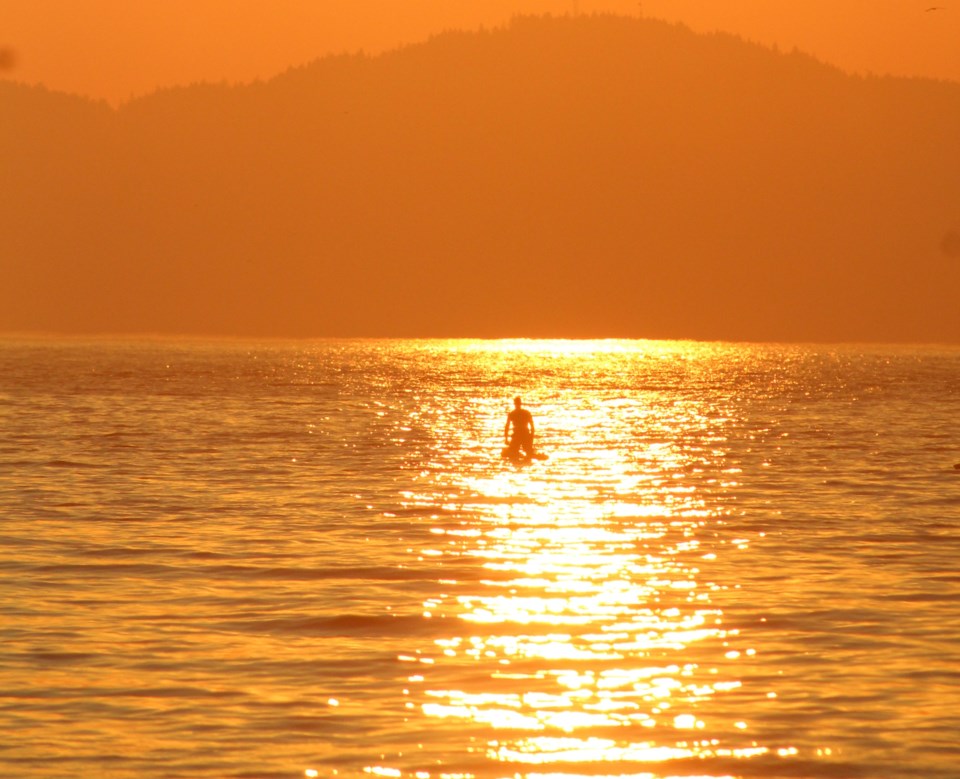In 63 years of records, no Vancouver summer has packed such scorching temperatures as this one did.
According to Environment Canada, summer 2021 was the second hottest ever recorded. To find a hotter summer, you have to go back to 1958 — the year NASA was founded and the plastic hula hoop and instant noodles hit shelves for the first time.
The daily average temperatures at Vancouver International Airport hit 18.9 C for June, July and August, only 0.2 below the 63-year-old record but well over the 17.2 C normal.
Usually, June is what Environment Canada meteorologist Armel Castellan calls a “troughy month,” with plenty of low-pressure systems offering rain and lower temperatures across much of B.C.
But this June bucked that trend when a one-in-a-thousand-year heat dome settled over the province, shattering all-time temperature records in over 50 communities. The high temperatures kept coming, with two more heat waves hitting the province in July and the early days of August.
The province’s biggest city was not the only community that registered one of its hottest summers.
Victoria recorded its third hottest summer on record with a mean daily average of 17.9 C, slightly off its 2015 record of 18.1 C.
Kamloops, meanwhile, recorded its second hottest summer with a mean daily average of 22.2 C, just shy of its 22.3 C record set in 1958.
For other communities, like Nanaimo (19.5 C), Kelowna (22.4 C), Penticton (22.1C) and Vernon (22.2 C), the summer of 2021 will go down as the hottest on record.
Those soaring temperatures can’t be separated from the extended drought and extensive wildfire smoke that continues to affect huge swaths of B.C.
“Temperature was the headline of the summer. The health impacts were so devastating,” says Castellan. “But they’re linked.”
“Smoke is a result of drought, is a result of these high temperatures.”
Environment Canada started seeing precipitation fall off early in 2021. With spring came the drought, setting the stage for blistering temperatures, wildfire and smoke that drifted across the continent as far as New York City.
Castellan says communities like Victoria, Abbotsford and Kelowna saw about a third of their normal precipitation.
It’s all part of a trend moving the province toward huge swings in seasonal extreme weather.
At a regional level, climate models predict British Columbia will see more precipitation fall in extreme events in the winter, with hotter, drier conditions dominating the summer.
“We know those patterns are shifting,” says Castellan. “The drought drives this type of storyline.”
While this summer’s heat has had deadly consequences, Castellan says the long-term fallout from excessive smoke exposure has yet to be tallied.
According to one looking at the 2017 wildfire season, smoke exposure was estimated to have cost Canada $20 billion, largely due to premature deaths.
With wildfire smoke stretching from B.C. to Toronto this year, Castellan says extremely high exposure in places like Kelowna and Kamloops this year is only likely to deepen that burden on society.
“The numbers are going to blow you away as they get released with respect to smoke,” he says.
CORRECTION: A previous version of this story noted Vancouver's hottest recorded summer was 72 years ago. It was, in fact, 63 years ago.





